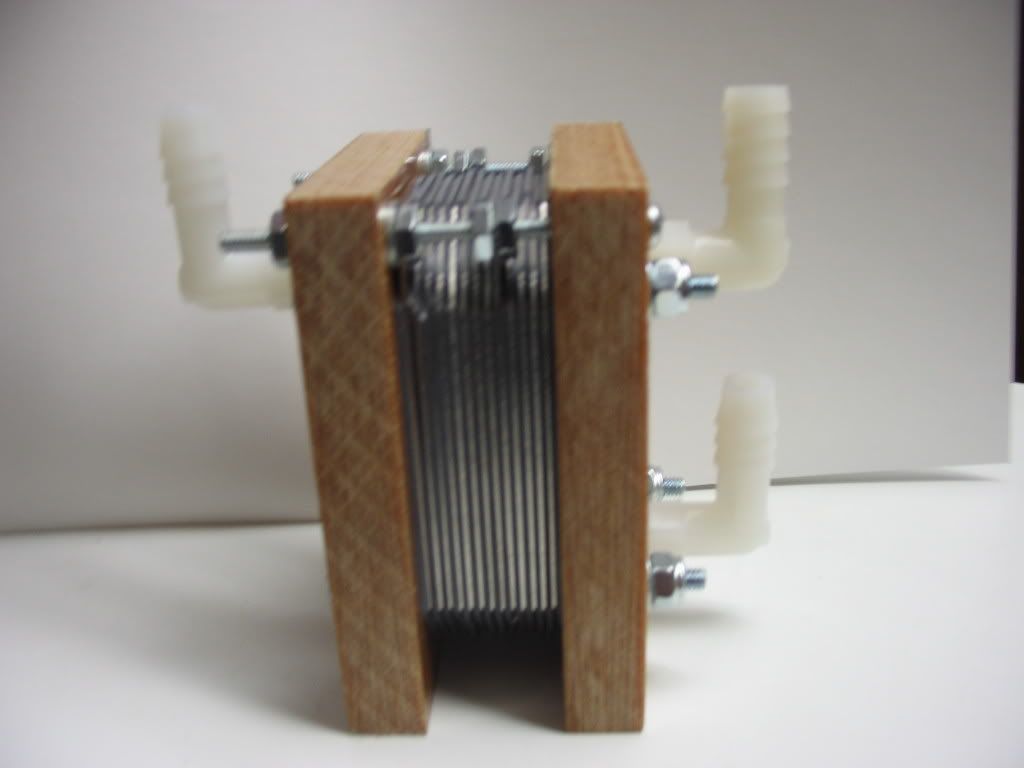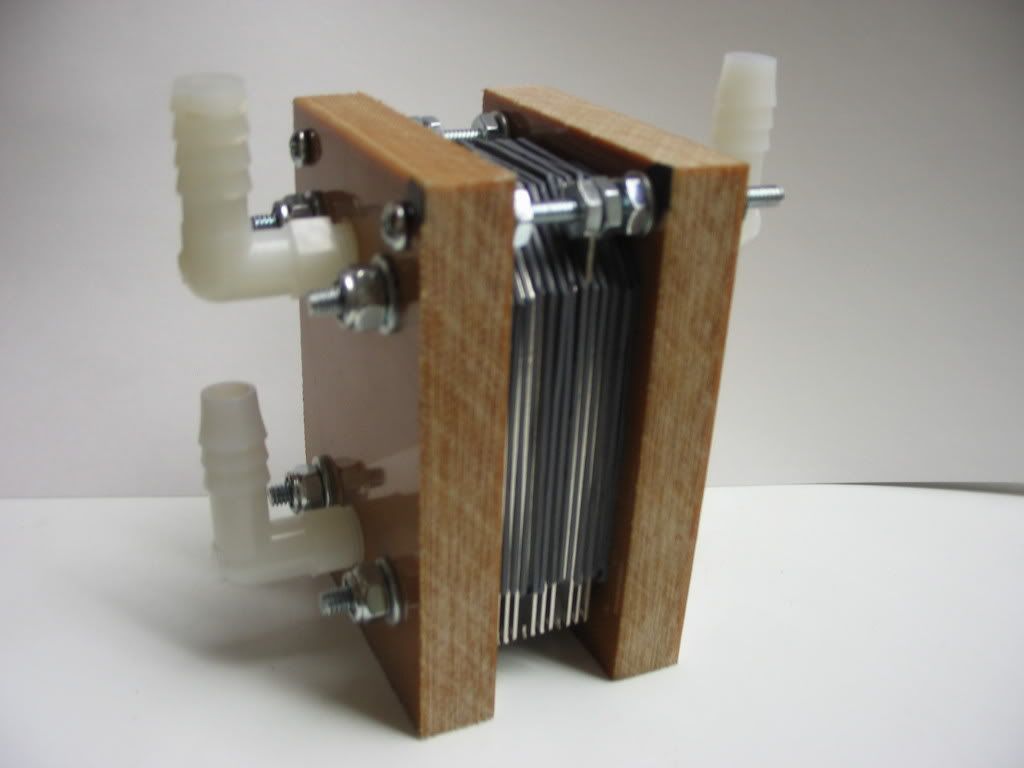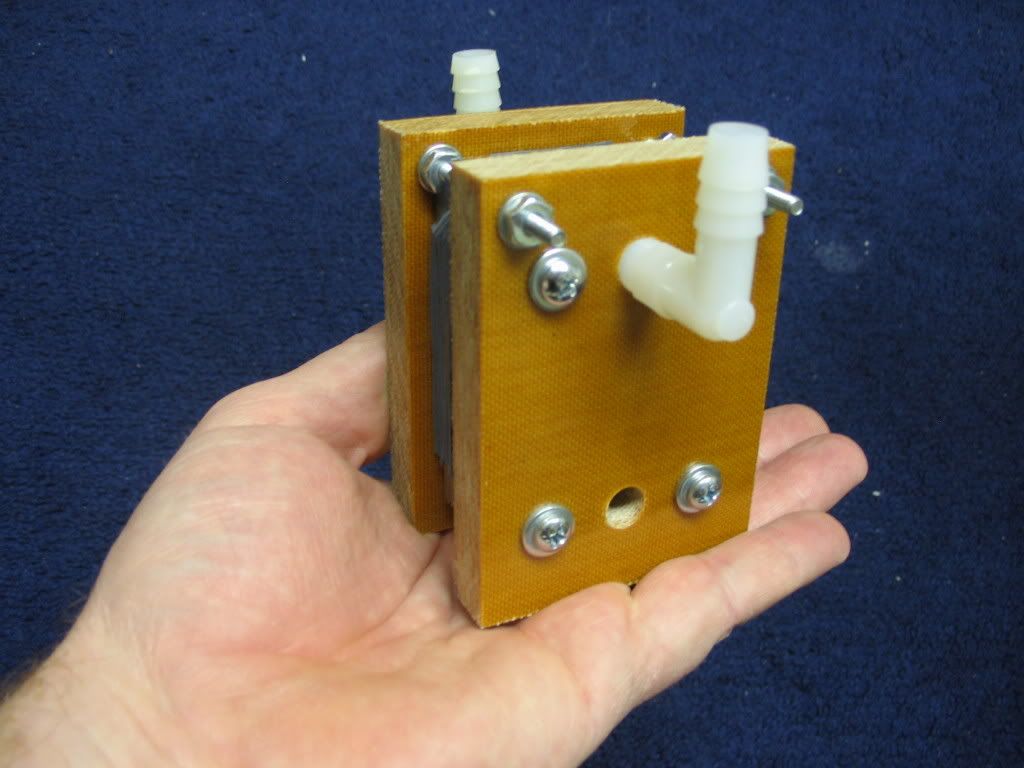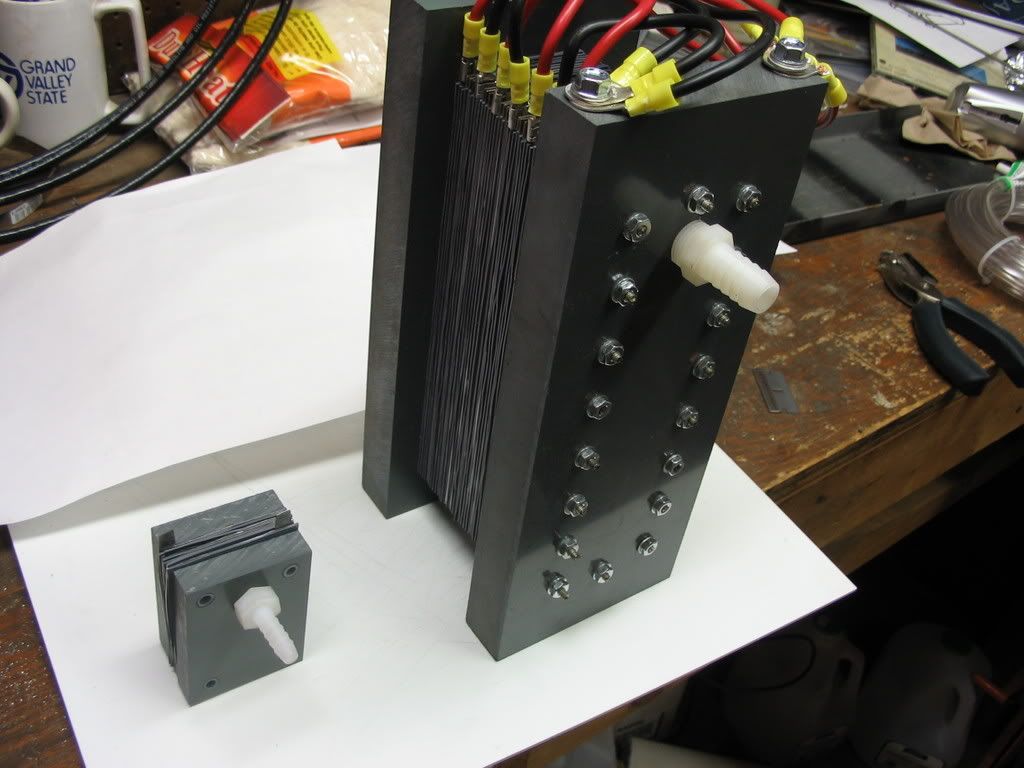
 |
PLEASE PATRONIZE OUR SPONSORS!






|
|||||||
 |
|
|
Thread Tools | Display Modes |
|
#21
|
||||
|
||||
|
I just realized I made my post after reading the first page and did not see page two! Duhhhh.
|
|
#22
|
||||
|
||||
|
I guess this guy is gone. Couldn't take the logic...
|
|
#23
|
||||
|
||||
|
I'll chime in.
I have been messing around with different hydrogen generators this last year. Had great results from some while others didn't work. Now I found a good viable design. As for distilled water...NO is doesn't conduct electricity but add some Potassium hydroxide(KOH) and you will see a world of difference. WARNING! KOH is dangerous to handle take precaution! I built a mini generator that I wish to install on my Cub. Here is a pic.     I haven't had a chance to install it yet because I am working on bigger designs but am curious how the Kohler will run with a good boost. Chase 
|
|
#24
|
|||
|
|||
|
It's just not a boost, for this to work the entire platform would have to be designed for the mean datum point of hydrogen being used all the time, this would mean a electrical system from wiring to charging capacity incorporated into the the design of the engine, and then you must take into account compression ratios, timing, material being used in valves, pistons, and if you get more power that means all things transmitting that power will need to be designed for this.
Now back to the point, anytime you convert energy you loose energy, it's a fact that can not be ignored, if your converting "water" into hydrogen you are loosing energy in more than just one place, charging system being one, then you must calculate the loss of the gas converted to electrical, then the electrical to hydrogen, and it could get real in depth on, and on. However if one wanted to design a engine to obtain certain characteristics using hydrogen to do so, I would then commend the person for experimenting, however as above a hydrogen generator will be less efficient every time when used in a "adapted" application. All that said, I'm interested in the outcome, and wish you luck, research, and document for those of use that our brains starve for information. |
|
#25
|
||||
|
||||
|
I'm guessing that the perceived or real results were the result of the environment. That being a warm day vs. not as much moisture. The warm day would have more oxygen and seem to run better. You might want to incorporate weather conditions in your record keeping. Good luck you could be the next ga-zillionare.
|
|
#26
|
|||
|
|||
|
Well thanks a lot guys! I have no idea what you are all talking about and it makes me feel really stupid. I'm calling my therapist.

|
|
#27
|
||||
|
||||
|
Quote:
As far as compression ratios, timing, material being used in valves, pistons there isn't enough hydrogen introduced to change the thermodynamics of the engine. Hydrogen does burn 3 times faster then gasoline however this facilitates the complete burn of gasoline. Gasoline's typical efficiency goes from 25% of the fuel used to power to almost a 100% when hydrogen is introduced. Since gasoline is the dominant fuel for this application there is no other modification needed to timing. If more hydrogen is used to the point it it the dominate fuel then timing must be retarded to accommodate hydrogen's use, if not then the engine will ping, predetonate, ect. That won't be the case. This little generator will produce about 300 ML per minute which is more then adequate for this little motor. When hydrogen is introduced into a motor one will notice the engine will run quieter and run smoother, even diesels. I'll wonder if that happens to the kohler. You see, I use to think this was a scam and was "snake oil". A friend gave a hydrogen generator that he was done messing with. I looked at it, it was a 4" PVC pipe with two pieces of rolled stainless steel. Cost about $15 dollars to make. I installed it on a 93' Chevy truck 4X4, 5 speed. To my surprise my mileage went from 11 to 14mpg around town. from 16 to 18 mpgon the highway. I couldn't believe it! The engine had more torque and it ran smooth and quiet. it only cost around 15 $$$ to make this. I could spend 3 thousand dollars and not improve mileage like that. That is what got me jump started in this hobby. Quote:
The rule of thumb is for every 10 amps there is one liter per minute of hydrogen production. I need at least 3 liters a minute to give a good boost in fuel mileage for my Suburban, that will need 30 amps to power the generator which the stock charging system can sustain. If I want more production, I will have to increase the amps but that puts a bigger burden on the Alternator. I do have options like an higher output alternator, add another battery all to accommodate more hydrogen production for more fuel mileage. I can even add an underdrive pulley to the alternator to decrease parasitic drag. The first thing for me is to add another battery. But if I can go from 13 MPG to 20 MPG then it's worth it. I can go higher if I wish to modify the electrical system further. I have a new generator I'm building for this application. Quote:
Quote:
NASA experimented with this back in 1977 on a caddy 472 engine. Here is the link: http://ntrs.nasa.gov/archive/nasa/ca...1977016170.pdf Take care, Chase 
|
|
#28
|
||||
|
||||
|
Quote:
The pictures you see is a "dry cell". A dry cell isn't submerged in water like the traditional "wet cells where the plates were dunked in a reservoir of water. which wasn't precise in production because of bumpy driving conditions. The dry cell isn't submerged hence the name "dry cell". It has a water reservoir above it and circulates water on it's own with less amp draw. They are more expensive to make but it's a better design. The one you see has laser cut plates...I know someone with a laser...LOL! Really, there are the "good the bad and the ugly in designs out there. You have to find the good one! Chase 
|
|
#29
|
||||
|
||||
|
Boy I really know how to stir up some CRAP:biggrin2.gif:
__________________
I H Pushmower,100,104,124,1450,1650,782,982,154 LoBoy,185 LoBoy,2 Farmall A's , Farmall H, and 8 IH trucks |
|
#30
|
||||
|
||||
|
I bet we can really "stir the pudd'n" about IH Cub cadet verses John Deere...LOL!
|
 |
|
|
Cub Cadet is a premium line of outdoor power equipment, established in 1961 as part of International Harvester. During the 1960s, IH initiated an entirely new line of lawn and garden equipment aimed at the owners rural homes with large yards and private gardens. There were a wide variety of Cub Cadet branded and after-market attachments available; including mowers, blades, snow blowers, front loaders, plows, carts, etc. Cub Cadet advertising at that time harped on their thorough testing by "boys - acknowledged by many as the world's worst destructive force!". Cub Cadets became known for their dependability and rugged construction.
MTD Products, Inc. of Cleveland, Ohio purchased the Cub Cadet brand from International Harvester in 1981. Cub Cadet was held as a wholly owned subsidiary for many years following this acquisition, which allowed them to operate independently. Recently, MTD has taken a more aggressive role and integrated Cub Cadet into its other lines of power equipment.
This website and forum are not affiliated with or sponsored by MTD Products Inc, which owns the CUB CADET trademarks. It is not an official MTD Products Inc, website, and MTD Products Inc, is not responsible for any of its content. The official MTD Products Inc, website can be found at: http://www.mtdproducts.com. The information and opinions expressed on this website are the responsibility of the website's owner and/or it's members, and do not represent the opinions of MTD Products Inc. IH, INTERNATIONAL HARVESTER are registered trademark of CNH America LLC
All material, images, and graphics from this site are the property of www.onlycubcadets.net. Any unauthorized use, reproductions, or duplications are prohibited unless solely expressed in writing.
Cub Cadet, Cub, Cadet, IH, MTD, Parts, Tractors, Tractor, International Harvester, Lawn, Garden, Lawn Mower, Kohler, garden tractor equipment, lawn garden tractors, antique garden tractors, garden tractor, PTO, parts, online, Original, 70, 71, 72, 73, 76, SO76, 80, 81, 86, 100, 102, 104, 105, 106, 107, 108,109, 122, 123, 124, 125, 126, 127, 128, 129, 147, 149, 169, 182, 282, 382, 482, 580, 582, 582 Special, 680, 682, 782, 782D, 784, 800, 805, 882, 982, 984, 986, 1000, 1015, 1100, 1105, 1110, 1200, 1250, 1282, 1450, 1512, 1604, 1605, 1606, 1610, 1615, 1620, 1650, 1710, 1711, 1712, 1806, 1810, 1811, 1812, 1912, 1914.